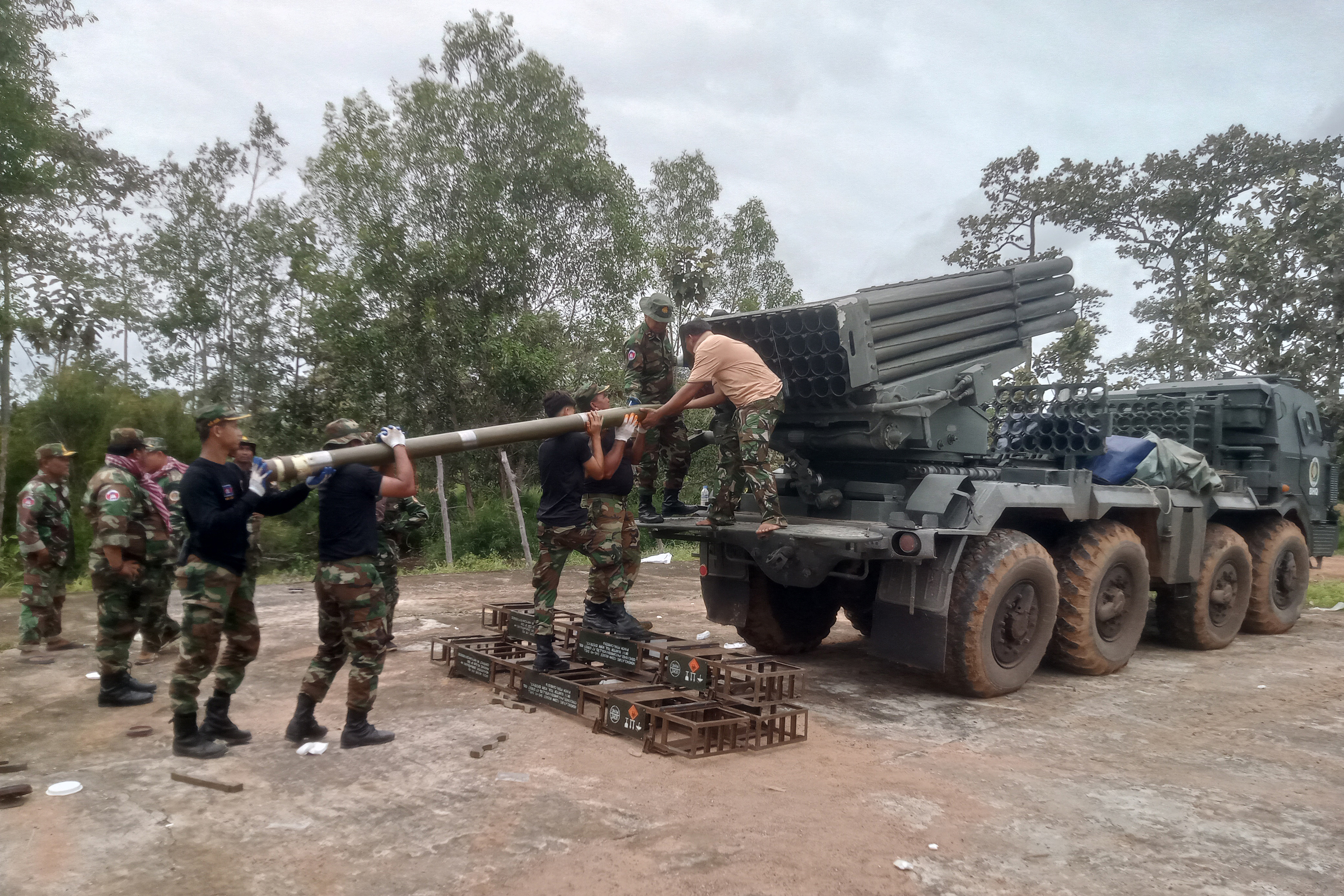Border clashes between Thailand and Cambodia, which erupted on 24/7, have resulted in at least 15 fatalities and escalated tensions following two months of simmering unrest. This marks the most serious confrontation between the two neighboring countries in over a decade.
Both Thailand and Cambodia are members of ASEAN, raising questions about the bloc's potential role in mediating the current tensions.
Joanne Lin, a senior fellow at the ISEAS-Yusof Ishak Institute, believes ASEAN has an opportunity to take decisive action and play a significant role in finding a resolution. Other member states could mediate or discreetly facilitate de-escalation between Cambodia and Thailand.
Malaysian Prime Minister Anwar Ibrahim stated on the night of 24/7 that he had spoken with Cambodian Prime Minister Hun Manet and acting Thai Prime Minister Phumtham Wechayachai. As the 2025 ASEAN Chair, Ibrahim urged both leaders to implement an immediate ceasefire, halt hostilities, and pursue peaceful dialogue and diplomatic solutions.
"I welcome the positive signals and goodwill from both Bangkok and Phnom Penh in considering this path. Malaysia stands ready to assist and facilitate this process in the spirit of ASEAN solidarity and burden-sharing," Ibrahim said.
 |
A convenience store in Nong Ya Lat, Thailand, hit by Cambodian shelling on 24/7. Photo: AFP |
A convenience store in Nong Ya Lat, Thailand, hit by Cambodian shelling on 24/7. Photo: AFP
Ibrahim's comments came hours after a group of ASEAN parliamentarians called for "immediate diplomatic intervention," urging the bloc's chair to push for a ceasefire, establish a humanitarian corridor, and initiate direct negotiations between Thailand and Cambodia.
Tensions between the two countries have been brewing since May, following a shooting incident between their forces in an undemarcated border area near the Preah Vihear temple, which resulted in the death of a Cambodian soldier.
The situation escalated in the early hours of 24/7, with both sides exchanging fire near the Ta Moan Thom temple in the disputed border region. Each accused the other of initiating the attack and claimed to be acting in self-defense. The fighting intensified as both Cambodian and Thai forces deployed heavy weaponry. Thailand accused Cambodia of firing rockets into residential areas and responded by deploying F-16 fighter jets to strike military targets across the border.
Cambodian Prime Minister Hun Manet wrote to the United Nations Security Council on 24/7, requesting an emergency meeting to address the conflict, but made no mention of ASEAN.
Experts highlight ASEAN's principle of non-interference as a key challenge in resolving bilateral disputes between member states.
ASEAN is founded on the principles of respecting national sovereignty and non-interference in the internal affairs of its members to maintain regional unity and stability. This foundation is crucial for sustaining long-term peaceful multilateral relations.
However, this principle also presents a significant obstacle when disputes or internal conflicts arise, making it difficult for ASEAN to undertake public mediation or demand adherence to peaceful resolutions. The principle's effectiveness in mediation relies on voluntary cooperation and consensus from both parties involved in the dispute.
The fact that ASEAN Secretary-General Kao Kim Hourn is Cambodian could also create a barrier to trust with Thailand, potentially hindering his ability to act as a neutral mediator.
During the 2008 Cambodia-Thailand border conflict, then-ASEAN Secretary-General Surin Pitsuwan, a Thai national, was perceived as biased by Cambodia, impacting the bloc's mediation efforts.
Despite these challenges, analysts suggest potential avenues for ASEAN to contribute to de-escalation and facilitate dialogue between Cambodia and Thailand.
Pou Sothirak, a senior advisor at the Cambodian Center for Cooperation and Peace (CCCP), proposes that ASEAN's primary role should be to provide a private diplomatic platform where discreet discussions can take place away from public scrutiny.
"This aims to create a space for both countries to reconcile their differences without escalating tensions," he said, noting that back-channel diplomacy can be more effective than public mediation attempts.
Aun Chhengpor, a policy researcher at the Future Forum in Cambodia, explained that while ASEAN cannot intervene publicly without a request from both countries, it can still serve as a venue for informal dialogue.
"The priority must be to prevent full-blown armed conflict. Any mechanism, whether bilateral, multilateral, or even through the International Court of Justice (ICJ), must aim to bring both sides back to the negotiating table," Chhengpor said.
 |
Cambodian soldiers load rockets in Preah Vihear province on 24/7. Photo: AFP |
Cambodian soldiers load rockets in Preah Vihear province on 24/7. Photo: AFP
Independent strategic consultant Po Sovinda echoed Chhengpor's view that ASEAN's mediation role largely depends on both nations requesting it.
Sovinda noted that while the ASEAN Chair can encourage dialogue, neither Cambodia nor Thailand has formally requested assistance, making it difficult for the bloc to publicly engage in resolving the tensions.
"ASEAN is like a parent trying to mediate between a disagreeing couple. They are angry at each other, but ASEAN cannot force either side to listen," Sothirak said, highlighting the challenge of securing cooperation from both Cambodia and Thailand.
Therefore, Sothirak believes that for any meaningful negotiations to occur, both the Thai and Cambodian governments must be receptive to dialogue.
"If neither side agrees to military de-escalation, any diplomatic solution will face difficulties," he said.
Observers emphasize the importance of building trust, reducing inflammatory rhetoric, and prioritizing peaceful resolution. The key to peace lies in both sides prioritizing diplomacy and engaging in meaningful negotiations.
"Diplomacy is not about instant solutions; it's about creating space for dialogue. Both Cambodia and Thailand must take that step if they want to move towards peace," Sothirak said.
Thuy Lam (Phnom Penh Post, Straits Times)












